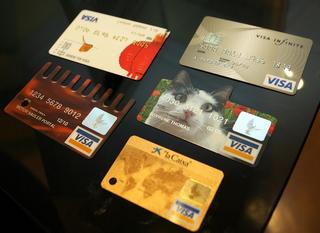"A Flaw Worse Than Melissa".
Published:
2 September 1999 y., Thursday
A team of computer scientists has discovered a bug in tens of millions of Microsoft Windows computers that lets an attacker take control of a PC by sending an email message. The security hole, present in most copies of Windows 95 and all versions of Windows 98, would allow a malcontent to conceal malicious computer code in an email message or Web page that can surreptitiously modify files, reformat a hard drive, or execute any DOS command. "It_s the Melissa virus, but even worse," says Dan Wallach, an assistant professor of computer science at Rice University who is one of the team members. "The Melissa virus required someone to click OK. This doesn_t." Microsoft has acknowledged the backdoor. This week, after the researchers contacted the company, it released an upgraded version of its Java virtual machine that fixes the problem. But the tens of millions of Windows users who have not downloaded the patch and have not disabled Java remain vulnerable to anyone who knows the technical details of the bug. At risk are Windows users who read email using programs like Outlook, Outlook Express, and Qualcomm_s Eudora that use Microsoft_s viewing software and have fairly recent versions of its Java virtual machine. A Trojan Horse sent via email will be executed as soon as the message is viewed -- without any prompting. Web browsing with Internet Explorer 4.0 and 5.0 can be dangerous if users click on a Web site with malicious Java -- but Netscape_s browsers are immune. Other members of the team include Drew Dean and Dirk Balfanz of Xerox PARC, and Princeton computer science professor Ed Felten, best known for his testimony as the government_s technical expert in the Microsoft antitrust case. All are current or former members of Princeton_s Secure Internet Programming group, which has revealed many security vulnerabilities in Java implementations over the last four years. This attack works by repeatedly sending a specific message to a Java thread, exploiting what computer scientists call a race condition. Usually, Microsoft_s Java virtual machine does the right thing by barring a program from executing dangerous functions. But the attacking program the researchers showed to Wired News doesn_t give up.
Šaltinis:
Wired News
Copying, publishing, announcing any information from the News.lt portal without written permission of News.lt editorial office is prohibited.
The most popular articles
Software company announced new structure_ of it_s business.
more »
 The iPhone's new “ATM Hunter” is a a free iPhone application built by MasterCard that allows users to quickly find the ATMs that are closest to them.
more »
The iPhone's new “ATM Hunter” is a a free iPhone application built by MasterCard that allows users to quickly find the ATMs that are closest to them.
more »
 In security breach cases last year, such as Hannaford Bros. supermarket and the card processing firm Heartland Payment Systems, cybercriminals gained access to millions of consumers' credit card details.
more »
In security breach cases last year, such as Hannaford Bros. supermarket and the card processing firm Heartland Payment Systems, cybercriminals gained access to millions of consumers' credit card details.
more »
 Ingenico, a provider of payment solutions, says contactless technology will split the retail market this year, improving sales figures for early adopters and costing those who shun the additional investment in this burgeoning technology.
more »
Ingenico, a provider of payment solutions, says contactless technology will split the retail market this year, improving sales figures for early adopters and costing those who shun the additional investment in this burgeoning technology.
more »
 Widevine Technologies today announced that the US Patent and Trademark Office has reconfirmed the validity of many claims of Widevine's U.S.
more »
Widevine Technologies today announced that the US Patent and Trademark Office has reconfirmed the validity of many claims of Widevine's U.S.
more »
 Nokia Corp., the world's largest maker of cell phones, is making a large investment in California-based Obopay Inc., a startup that's pushing person-to-person mobile-payments technology.
more »
Nokia Corp., the world's largest maker of cell phones, is making a large investment in California-based Obopay Inc., a startup that's pushing person-to-person mobile-payments technology.
more »
 The increasing amount of overlap and duplication of data, tasks and processes in their anti-fraud and anti-money laundering divisions is driving banks to seek synergies between compliance, risk management and security, according to a new report from Datamonitor.
more »
The increasing amount of overlap and duplication of data, tasks and processes in their anti-fraud and anti-money laundering divisions is driving banks to seek synergies between compliance, risk management and security, according to a new report from Datamonitor.
more »
 The total number of IPTV subscribers worldwide passed the 20mn mark at the end of 2008, according to new figures from Informa Telecoms & Media, taking into account both disclosed and estimated figures.
more »
The total number of IPTV subscribers worldwide passed the 20mn mark at the end of 2008, according to new figures from Informa Telecoms & Media, taking into account both disclosed and estimated figures.
more »
 The IPTV World Forum opened its doors this morning on a bright London day, and the mood was equally optimistic indoors, with the conference rooms packed for keynote presentations from Christopher Schläffer of Deutsche Telekom, Christophe Forax from the European Commission and the BBC's Richard Halton, charged with making Project Canvas a reality.
more »
The IPTV World Forum opened its doors this morning on a bright London day, and the mood was equally optimistic indoors, with the conference rooms packed for keynote presentations from Christopher Schläffer of Deutsche Telekom, Christophe Forax from the European Commission and the BBC's Richard Halton, charged with making Project Canvas a reality.
more »
 A new Gartner Inc. report suggests that financial fraud could drive consumers away from banks and into the arms of electronic payment systems, such as PayPal, that they perceive to be more secure.
more »
A new Gartner Inc. report suggests that financial fraud could drive consumers away from banks and into the arms of electronic payment systems, such as PayPal, that they perceive to be more secure.
more »
 In the last year this more than doubles the number of cards and devices in circulation around the world.
more »
In the last year this more than doubles the number of cards and devices in circulation around the world.
more »